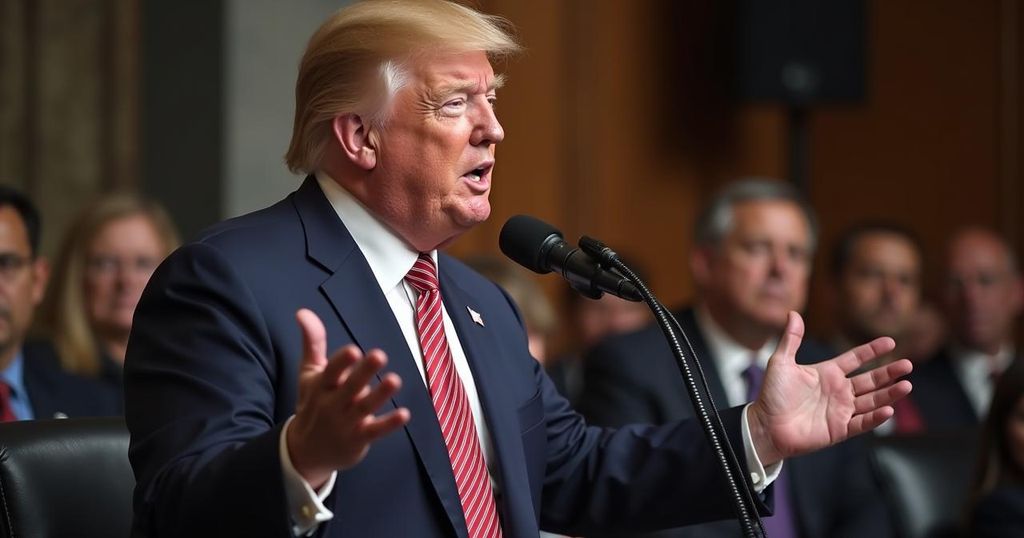Republican House Speaker Mike Johnson recently claimed, without evidence, that there will be election fraud and non-citizens voting in the upcoming 2024 election. During interviews, he echoed narratives of previous electoral fraud allegations and called for stricter voting regulations, despite legal challenges and existing laws prohibiting non-citizen voting. Concerns were raised by former Rep. Liz Cheney regarding Johnson’s ability to uphold election certification responsibilities.
In a recent interview, Republican House Speaker Mike Johnson voiced unsubstantiated concerns about potential electoral fraud in the upcoming 2024 presidential election, specifically asserting that there would be incidents of cheating and non-citizens participating in voting. Johnson, who previously opposed the certification of President Joe Biden’s victory in 2020, made these claims during an appearance on “Face the Nation.” He stated, “I think there is going to be some cheating in this election. I think non-citizens are going to vote.” When confronted by moderator Margaret Brennan about the legality of such actions, which are indeed against federal law, Johnson responded by suggesting that some states are not adequately verifying voter eligibility. He further elaborated on his views, expressing support for Virginia Governor Glenn Youngkin’s efforts to “clean up” voter rolls, despite ongoing legal challenges from the Department of Justice regarding state compliance with federal election laws. Johnson’s remarks also echoed narratives propagated by former President Donald Trump regarding electoral fraud, lacking evidence. During the interview, when asked if he anticipated a repeat of the January 6 events in 2025, Johnson expressed optimism, asserting, “I certainly pray and hope that’s true,” while also promising a peaceful transfer of power. However, he refrained from committing to certify a potential vice-presidential victory for Kamala Harris, stating he would do so only if the election was deemed “free, fair, and legal.” Former Representative Liz Cheney expressed significant concerns regarding Johnson’s ability to uphold his constitutional duties regarding election certification, given his acknowledgment of previous fraudulent claims made by Trump. In sum, Johnson’s recent assertions reflect a continuing trend among certain Republican leaders to question the integrity of the electoral process without presenting substantiating evidence, raising alarms about possible voter suppression and the politicization of election law enforcement.
The discourse surrounding electoral integrity has been a contentious topic in American politics, particularly following the controversial 2020 presidential election. Allegations of widespread voter fraud, particularly from Republican circles, have persisted despite a lack of credible evidence. This atmosphere has led to the introduction of various laws and initiatives intended to tighten voting regulations in several states, often framed as necessary measures to preserve electoral integrity.
In conclusion, Speaker Mike Johnson’s unfounded claims about election cheating and the involvement of non-citizens in voting reflect ongoing tensions regarding electoral integrity in the United States. His assertions, lacking concrete evidence, mirror past narratives that have contributed to significant divisions within American politics. The insistence on stringent voter ID laws, coupled with resistance from some political factions to these measures, suggests a fraught political landscape as the 2024 elections approach. Furthermore, the scrutiny over Johnson’s commitment to certifying the election results raises important questions about the adherence to democratic principles among elected officials.
Original Source: www.rollingstone.com






